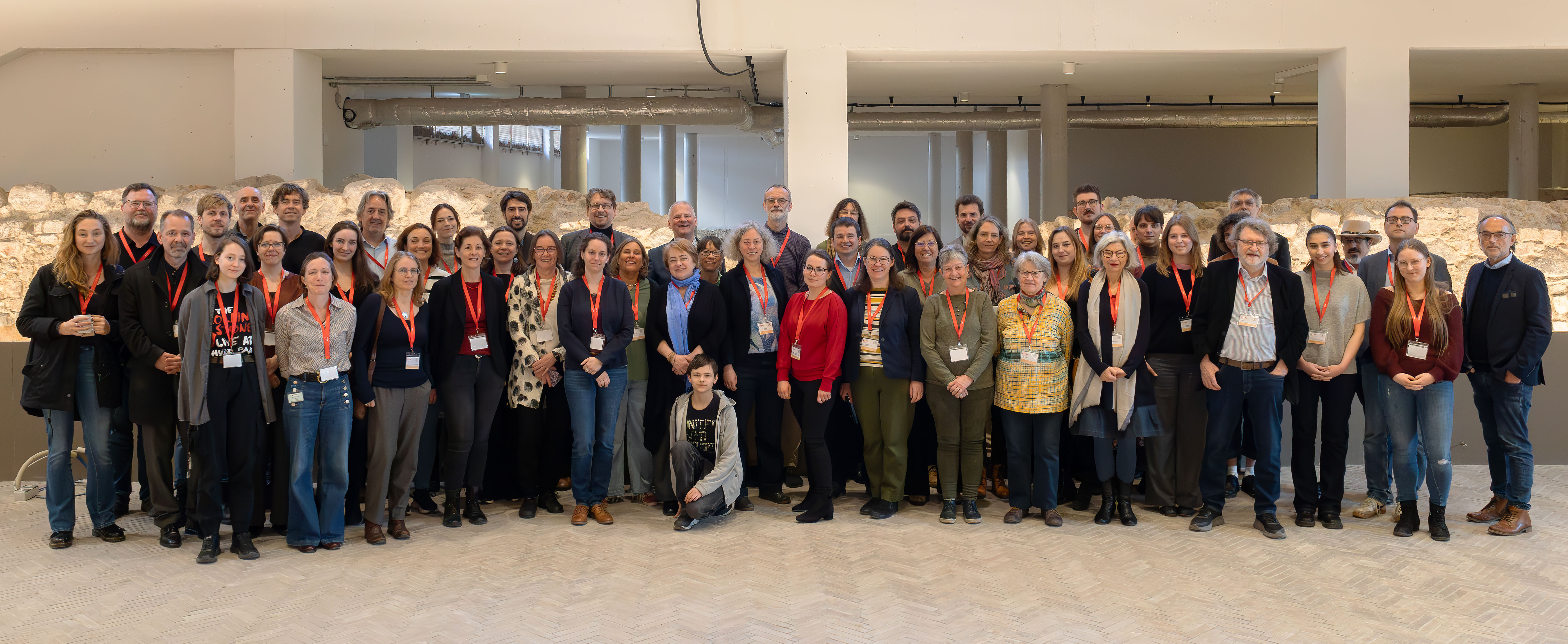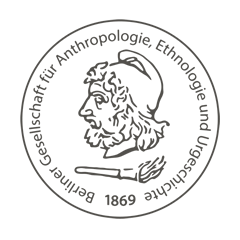BGAEU Congress 2025
Date/Termin: 27.–28.03.2025
Location/Ort: PETRI-Berlin, Kleine Gertraudenstraße 8, 10178 Berlin
The colonial heritage of European nations plays a major role in current discourse. The collection history of the BGAEU is largely linked to the colonial history of the German state, which is why the question arises on an ethical-historical level as to how it should be dealt with scientifically today and in the future. The first step is to clarify what cognitive value these collection items still have today. The starting point for an approach to this topic could be the research that has been carried out on these objects in recent years. What future research questions could emerge from this?
At the planned scientific meeting, we should first clarify the fundamental positions in dealing with human remains today and their position within the larger topic of a critical examination of the colonial legacy. To this end, we should endeavour to bring together the most important voices in the post-colonial discourse and representatives of collections with comparable objects. It would then be important to ask all those colleagues who have worked scientifically with human remains from more recent historical contexts in recent years to comment on this issue. This includes all anthropological university institutes and departments, as well as the various laboratories that deal with human DNA.
The discussion should be open-ended, also in the knowledge that a negative answer to the question of the usefulness of such a collection in today's world will inevitably confront us with the problem of how to deal with it in the future.
Sponsored by the German Research Foundation (DFG).
Program: PDF

Conference participants.
Speakers & affiliations
- Gabriele Alex (BGAEU/University of Tübingen)
- Margit Berner (Natural History Museum, Vienna)
- Peter Bolz (BGAEU)
- Tara Chapman (Royal Belgian Institute of Natural Sciences & Free University of Brussels)
- Maureen Devlin (University of Michigan)
- Ewa Dutkiewicz (BGAEU/SPK – Berlin State Museums, Museum for prehistory and early history)
- Stefan Exner (Charité – Berlin University Medicine, Centrum für Anatomie, Institute of Cell Biology and Neurobiology)
- Martin Friess (National Museum of Natural History, Paris)
- Merel Fuchs (Decolonize Berlin)
- Bernhard Heeb (BGAEU/SPK – Berlin State Museums, Museum for prehistory and early history)
- Irene Hochgraf-Cameron (University of Michigan)
- Elke Kaiser (BGAEU/Free University of Berlin)
- Marius Kowalak (SPK – Berlin State Museums, Museum for prehistory and early history)
- Oleksandra Kozak (Institute of Archaeology National Academy of Science of Ukraine, Kiev)
- Johannes Krause (Max Planck Institute for Evolutionary Anthropology, Leipzig)
- Ben Krause-Kyora (Institute of Clinical Molecular Biology, University of Kiel)
- Raiko Krauß (BGAEU/University of Tübingen)
- Doris Pany-Kucera (Natural History Museum, Vienna)
- Csilla Líbor (Hungarian National Museum, Budapest)
- Sandra Lösch (Institute of Forensic Medicine, University of Bern)
- Jan Novacek (Thuringian State Office for Monument Conservation and Archaeology, Weimar)
- Caroline Polet (Royal Belgian Institute of Natural Sciences, Brussels)
- Alexis von Poser (BGAEU/SPK – Berlin State Museums, Museum for Cultural Anthropology and Asian Art)
- Cosimo Posth (Institute for Archaeological Sciences, University of Tübingen)
- Ana Luísa Santos (University of Coimbra)
- Patrick Semal (Royal Belgian Institute of Natural Sciences)
- Roman Sokiranski (Medical University Varna)
- Alexander Stößel (Jena University/MPI Leipzig)
- Barbara Teßmann (BGAEU/SPK – Berlin State Museums, Museum for prehistory and early history)
- Karin Wiltschke-Schrotta (Natural History Museum, Vienna)
- Andreas Winkelmann (Brandenburg Medical School, Neuruppin)
- Wanda Zinger (National Museum of Natural History, Paris)
- Albert Zink (Institute for Mummy Studies, Eurac Research, Bolzano)


